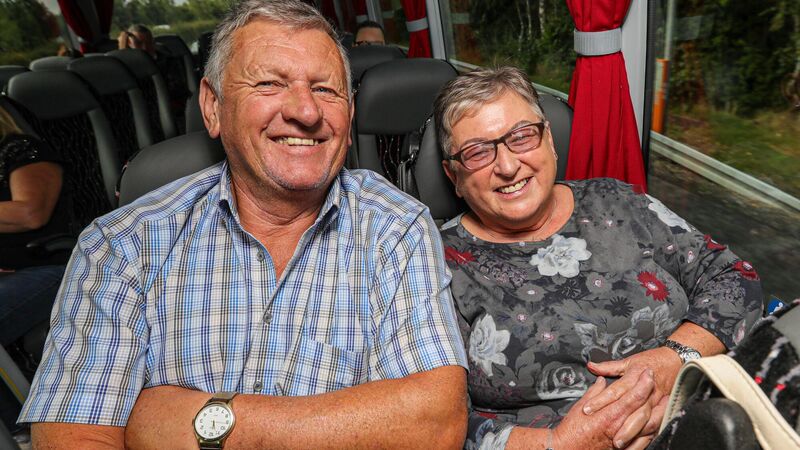Belfast or Blind: Stories from the life-changing cataracts bus

Neilie Duggan accompanying his wife Patsy, from Rosscarbery, West Cork, on the Belfast or Blind bus. Picture: Neil Michael.
When the TD you are trying to get hold of says he can’t talk because he is with one of his “patients”, you might be forgiven for thinking it is a slip of the tongue.
But in the case of Michael Collins, it wasn’t.











